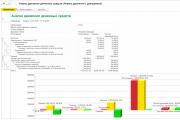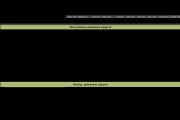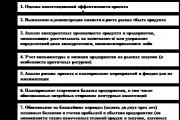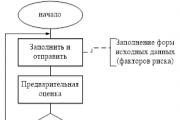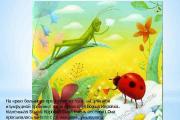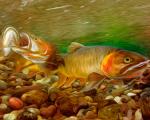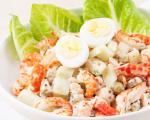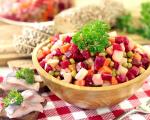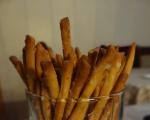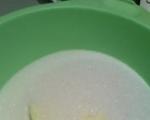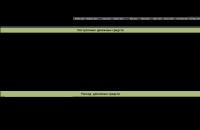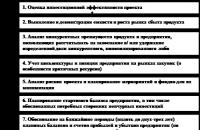02.04.2019
A woman's nutrition during breastfeeding. What a mother should not eat during breastfeeding. Breakdown by protein meal
A loving mother always cares about the health of her child. What is most important for a newborn? One of the important points is to solve the problem - what can a nursing mother eat while breastfeeding, because along with milk she will pass on to the baby as useful components your diet, and not very much.
Download the food list (what you can eat and what you can’t eat)
—
What you can and cannot eat while breastfeeding
First of all, you should prepare - even the strictest diet will not help you in the first month of breastfeeding - the baby adapts to the outside world, to eating food through the stomach, and not the umbilical cord, so sometimes he may have gas, intestinal colic or diarrhea. You shouldn’t be afraid of this - the baby will very quickly get used to the new conditions, and then it will be possible to gradually introduce new products into the mother’s diet.
To track your child's reaction to a product, you can keep track of food diary. Every day, write down the foods you eat and your child's behavior.
Brief list of permitted products
- Vegetables. Be sure to cook them; at first, refrain from eating them raw. Bake, boil, stew. Freshly squeezed juices are possible after one month. After three, add fresh vegetables to the menu. >>>
- Fruits. Avoid grapes, citrus fruits, mangoes, papaya, avocados, strawberries and raspberries. Apples are only baked, try to peel them. You can eat bananas without fear. Freshly squeezed juices are possible after one month. After three, you can introduce one new fruit every two days, monitor the baby’s reaction. >>>
- You can eat almost all porridges, they aid digestion, plus they are filling and contain many nutrients. Except instant porridges.
- Variety of soups in vegetable broth.
- Meat We eat separately from all foods and only lean foods.
- Cheese.
- Poultry meat.
- Dairy products you can introduce kefir, fermented baked milk in a week (it’s better to use it, it softer than kefir), cottage cheese, yogurt, yogurt.
- Boil fish (sea, river), bake with vegetables. ()
- Eggs You can also eat it, but remember that it is an allergen.
- Bread can be eaten in small quantities with additives - for example, bran.
- You shouldn't indulge in sweets, however, you can eat dried fruits, biscuits, biscuits, and bagels.
- Butter and vegetable oil.
- Dry crackers, cookies, marmalade, marshmallows, marshmallows (without chocolate).
- Weak green and black teas, weak coffee, fruit drinks, compote, herbal teas with mint, thyme and oregano, still mineral water.
- After a month you can gradually introduce it into the menu borscht, sour cream, nuts, fruit drink, jam.
After six months you can eat honey, various herbal seasonings, legumes, seafood. You can also eat during this period macaroni, cheese, seasonal fruits and vegetables(this is important, only for the season!).
Note to moms!
Hello girls) I didn’t think that the problem of stretch marks would affect me too, and I’ll also write about it))) But there’s nowhere to go, so I’m writing here: How did I get rid of stretch marks after childbirth? I will be very glad if my method helps you too...
In addition, you need to know about stop products, the use of which is strictly prohibited for all nursing mothers. First of all, this: 
- Alcohol.
- Chocolate, some sweet foods - baked goods, especially with the addition of various dyes and substitutes.
- Coffee and tea, refrain from this at least for the first six months. Subsequently, you can use them, but only high-quality ones, coffee - well brewed, tea - brewed, not in bags. ATTENTION! The exception is special teas, the so-called, which contain fennel, cumin, lemon balm, anise - such breast milk teas.
- You must refrain from semi-finished products, products with artificial preservatives and dyes; you can only eat high-quality and fresh products.
- You should also avoid carbonated drinks - they will not bring any benefit to either the baby or the mother.
- Garlic, onions and other spicy foods.
- From smoked meat, sausage, fish.
- From fatty meat and lard.
- From legumes and black bread.
- From sauerkraut, radish, radish, fermented cheeses (Suluguni, feta cheese, Adyghe), sausages, ham.
- From exotic fruits.
The point of the diet was to exclude from the mother’s menu all foods that could cause allergic reactions or digestive disorders in the baby. Currently, pediatricians and breastfeeding specialists argue that a nursing woman needs a healthy and varied diet, and a strict diet can be not only useless, but also harmful for herself and her baby.
The fact is that the composition of milk depends very little on the mother’s diet. If the mother eats poorly, the quality of the milk will not become worse. The child will continue to receive almost all the substances and microelements he needs. Only all of them will be taken from the mother’s body, which can adversely affect her health.
Diet of a nursing mother
Daily nursing mother should receive full and balanced diet. The calorie intake should be 400–600 kcal per day more than usual, since approximately the same number of calories are spent per day on the production of breast milk. IN nutrition for a nursing mother must be present the following groups products: low-fat varieties meat, poultry and fish; dairy products (kefir, yogurt, cottage cheese, fermented milk products); bread (preferably with bran, from wholemeal flour); cereals and pasta; butter and vegetable oil; vegetables and fruits.
Nursing nutrition: Allergies Most common cause The reason why a mother may be advised to go on a strict diet is the risk of allergies in the baby. Usually, a predisposition to it is inherited: children often react with an allergic reaction to precisely those products that cause allergies in their parents. Indeed, there are products with high degree allergenicity (citrus fruits, chocolate, cocoa, cow's milk, mushrooms, nuts, Exotic fruits, honey, strawberries, crayfish, crabs, etc.), to which the baby, due to its individual characteristics, can react with an allergic reaction. But this does not mean that they should be completely abandoned. Of course, in the first months of a baby’s life, when his intestines are not yet mature enough to retain allergens coming from mother’s milk, it is recommended to limit these products in your menu.
In the future, after about 3 months, you can introduce them gradually, one at a time and not at a time. large quantities, observing the baby's reaction. If allergic reaction is not observed (redness of the skin, rashes on the skin, changes in stool), then the volume of this product can be doubled. If a reaction occurs, then the mother needs to exclude it from her diet.
Oddly enough, it is important for the baby that as few foods as possible are permanently prohibited. This is due to the fact that when allergens reach a child in small quantities through breast milk he develops tolerance (tolerance) to this product, which helps prevent the occurrence of allergies in the future.
Nutrition for nursing mothers: digestive disorders For various digestive disorders in a child (increased gas formation, colic, constipation, diarrhea, etc.), the mother is also often advised to follow a diet and exclude from her diet foods such as cabbage, zucchini, black bread, legumes (peas, beans), grapes, beets, etc. Is this really necessary? These products contain a lot of fiber, which can be poorly broken down and absorbed in the intestines of the mother herself. As a result of this, she herself may experience constipation, heartburn or flatulence. Depending on the strength of the reaction, changes occur in the mother’s blood, some of which may affect the composition of the milk, which, in turn, causes disruption gastrointestinal tract child. But most often, children react with digestive disorders not to the product itself, but to a certain method of preparation.
It often happens that raw vegetables in the diet of mothers they cause flatulence, and vegetables that have undergone heat treatment are digested without any problems. To make it easier to figure out which foods the baby reacts negatively to, it is recommended that the mother food diary. It should indicate what product she ate and how the baby reacted to it. If the mother, based on her diary entries, noticed that the child reacted to a cabbage dish at least 2 times with flatulence and abdominal colic, then it should be limited. So, a nursing mother should not adhere to strict diet and starve yourself.

Dietary restrictions for a nursing mother
But every rule has its exceptions. It’s the same in nutrition. whole line products that a nursing woman is recommended to exclude from her diet: products containing artificial colors, preservatives and flavors; fats produced from soybeans, palm trees and rapeseed (margarine); alcohol; exotic products (papaya, mango, avocado, etc.); fatty, smoked, fried foods, hot seasonings, marinades, sauces (mayonnaise and ketchup); carbonated drinks. Special diet can be prescribed to a nursing mother only if she has some kind of disease (for example, diabetes mellitus, diseases of the liver and gallbladder, kidneys). This diet is prepared by a doctor, taking into account individual characteristics the woman, her state of health and the severity of her illness. In all other cases, the mother should receive a sufficient amount of healthy and varied food.
You may be interested in articles
Oh, hold me seven, now I’ll write about something that really infuriates me.
I want to talk about . More precisely, about the nutrition of a nursing mother. More precisely, about dietary restrictions for a breastfeeding mother. I can’t understand why a huge number of pediatricians in Russia, when they come to check on the baby, start spewing this nonsense from the doorway that “raw vegetables are not allowed, fruits are only baked apples, and it’s best to eat only buckwheat and boiled turkey, just in case.” .
Personal story. Scary pediatrician forecasts
A tired-looking woman pediatrician came to our home right after being discharged from the maternity hospital, who was always holding a small book in her hands. Even in the elevator, she put on a mask, so I couldn’t see anything in her except her expressionless gaze.
After putting on shoe covers and washing my hands, the first thing she asked was whether I was on a diet. Do you understand?! She didn’t examine the child, didn’t find out how we were feeling at all. No, she asked: “Are you on a diet?”
I answered honestly that I had just eaten moracella with tomatoes and pasta with chanterelles. I ate the whole thing with delicious plums. It's autumn. You should have seen her eyes! These eyes, towering above the mask, like two windows sealed with film ready for repair, suddenly lit up with righteous anger, immediately doubled in size and began throwing lightning bolts at me.
She predicted an unnamable reckoning for my child in the form of colic, gas, and oh-so-terrible allergies. In her world, my unfortunate Mishka should have been torn into small pieces by the accumulated gases! You are allergic to small red pieces!
Then she spent about 20 minutes telling me in detail everything about buckwheat, turkey and baked apple, all the while looking at her wonderful little book. I asked, how can I improve my bowel function, sorry, if I don’t eat any raw vegetables and fruits!
Can we at least have green salads? Like arugula, iceberg, etc. “No, no, no!” she exclaimed. Then I decided to finish her off with the question “why”. Her answer, shaking the book, still leaves me bewildered: “There is an order from the Ministry of Health, we follow it.”
Sadness, hunger and the victory of common sense
At first I was very upset and scared. Almost to the point of tears, because of hormones, and then there are also accusations that I, growing so big, want to ruin my child. I honestly switched to buckwheat with chicken and gave up fruits and vegetables. After 2 days, hunger made me look for some common sense in this whole story. I thought: my child is absolutely healthy, nothing hurts now, he doesn’t have a rash, he doesn’t cry, he hums normally and sleeps. Why would I not eat anything beforehand? Well, if I get a rash or my stomach hurts, I’ll stop eating that something.
I began to look for the truth on the English-speaking Internet, and imagine my surprise that there were no traces of any strict diets for nursing, especially those excluding raw vegetables and fruits.
And nothing, foreign children live, are alive and well, and often live better than ours! And colic with gas and allergies seem to be within the statistical norms.
Experiences on yourself: what you can eat
From that moment on, I decided for myself that I would not torture my body. I was just eating healthy food: a lot of vegetables and fruits, good meat, fish, whole grain bread, cereals, quality pasta and sushi in good restaurants, khinkali and other joys Georgian cuisine, pilaf and other joys of Uzbek cuisine, limited sweets, but did not exclude them. Even chocolate. Misha ended up suffering from the gas for exactly 3 days and calmed down with just three doses of espumisan. Yes, a pink, rough rash appeared on my knees a few more times, but that was it!
Well, that is, he did not suffer from all these tummies in any way.
At the same time, I in no way deny allergies and gas in other children.
Of course, if it breaks out, then you need to check for what, etc. Or you cry uncontrollably, and you think it’s due to gas, then you should also limit your intake of certain foods.
By the way, Mikha suddenly began to cry loudly several times, but through experience I found out that this was due to too much drinking. By the way, do you know that until three months old, children should not be awake for more than one to one and a half hours maximum?? For some time I learned to clearly monitor the signs of fatigue and put the guy to bed on time. As a result, this helped to forget about the causeless hysterics and yelling in general.
Of course, you may not believe me, because, you never know, maybe I was just lucky. To this objection I have an argument in the form expert opinion practicing pediatric hematologist, part-time mother and author of the project Anastasia Arseneva.
She gave a detailed answer to my short question specifically for this article:
“Are dietary restrictions for nursing mothers justified?”
“In the 20th century, sterility and disinfection measures applied to women who had just given birth to a child and newborns reached their maximum. It was considered necessary to sterilize feeding bottles and nipples, wash breasts with soap before feeding, give children exclusively sterile or heat-treated foods, boil Kids' things.
And then, in the time of our mothers, these were justified measures. After all sanitary conditions most families were not ideal, and the main killer of babies was various infections. These measures achieved their goal. The mortality rate of children in infancy and women in childbirth has decreased significantly.
However, over time it became clear that such success has a downside.
Excessive sterility interferes with normal formation immune system child.
Simply put, small amounts of dirt and germs from environment simply necessary for the health of your baby.
The dominant hypothesis today to explain the massive spread food allergies and asthma in children is called hygienic.
Its essence is that the immune system of a modern baby during its early development too protected from germs and all potential allergens, including food ones. When, at an older age, a child encounters them, the immune system reacts to them inappropriately, namely with allergies.
It turns out to be a vicious circle.
The longer we protect a child from encountering a potential allergen (such as cow's milk, fish, eggs, nuts), the more likely that he will get this allergy.
Observations have shown that restrictions in the diet of pregnant and breastfeeding women are not effective means prevention of food allergies in children.
At the same time, an important result of the research was the fact that it is most advisable to begin introducing new foods into a child’s diet at the age of 4 to 6 months. This applies to all products, including potential allergens.
The more different products If the baby tries until he is 1 year old, while being breastfed, the better. It is very important that the child is introduced to new foods while breastfed.
Breast milk contains special immunoglobulin proteins that bind to microparticles of the new product and, as it were, present it to the immune system as a friend.
After a year, the child already receives too little mother's milk, or does not receive it at all. So there is no one to introduce new products to the immune system. This means that the risk of an allergic inadequate reaction to them increases.
You need to start introducing your baby to new foods during pregnancy. Mom should not limit herself to variety. On the contrary, food should be very varied and, of course, healthy. During breastfeeding You also need to maintain this style of eating. Then, from the first days, the baby will receive particles of different foods with milk, and his immune system will get used to them.
But what will really help protect your baby from allergies?
1. Refusal of products containing hydrogenated vegetable fat(margarine), as well as artificial food colors and preservatives during pregnancy and pregnancy.
2. Proper care baby's skin, which prevents it from overdrying and damage.
3. Prevention of vitamin D deficiency. According to modern data, vitamin D is absolutely necessary for the immune system for normal operation. Prevention of vitamin D deficiency is part of the strategy for preventing all types of allergies and atopic dermatitis.
Endocrinological science Center RAMS released official recommendations By prophylactic doses vitamin D for healthy residents of Russia (cholecalciferol or ergocalciferol in drops): pregnant and breastfeeding women - 1500 IU (3 drops) per day, children starting from 1 month of life - 500 IU (1 drop) per day daily from November to March. These are the minimum required doses; they can be increased individually by your doctor.
4. Sufficient amount of Omega 3 polyunsaturated fatty acids in the diet of pregnant and breastfeeding mothers. In the modern Western diet, many foods contain Omega 6 fats and very few contain essential Omega 3 fats. This preponderance towards Omega 6 disrupts the normal development of the child’s immune system in utero and in the first years of life.
During pregnancy and breastfeeding, you MUST eat fatty foods. sea fish at least 3 times a week. And from 8-10 months you can and should offer it to your baby. Of course, if his parents do not have an obvious allergy to this fish.
Another option is to use Omega 3 or fish oil in capsules.
I wish everyone to stay healthy!
In this whole topic of allergies from every unfortunate tomato or strawberry and gas from green beans or arugula, I like the approach of the Americans. I started translating an article from the popular American resource What to expect. Having scoured the Internet, I discovered that it generally reflects the opinion of American pediatrics, but does not go into deep jungle. In the near future I will finish and publish it: there are very sensible and very specific points on what is possible and what is not.
This is not only pointless, it is harmful!
Let's stop obscurantism and finally believe in evidence-based medicine!
Pregnancy is both touching and difficult period for any representative of the fair half of humanity. During pregnancy, a woman's body changes and rebuilds, so after childbirth her body becomes different. A common problem for women who have recently given birth is gaining excess weight. Often, intense exercise in the gym helps to cope with figure defects, but young mothers cannot exhaust themselves so much, because they need to breastfeed. Under no circumstances should you give up lactation, since it is through mother’s milk that the baby receives more microelements and vitamins that help him cope with diseases. In this case, a weight loss diet would be the ideal solution.
The principle of diet during breastfeeding
Breast milk is a complete nutritional fluid for the baby, which provides him with high immunity and good resistance to viruses. Research shows that babies who are fed breast milk in the first months of their lives are much healthier than those whose mothers gave commercial formula. But the quality of milk depends on how the woman eats. The feeding diet is quite acceptable, but doctors advise sticking to following principles:
- must be balanced by everyone useful substances and microelements. In this case, a breastfeeding diet for weight loss will benefit not only the mother, but also the child.
- Fasting in order to lose weight is prohibited. The mother must eat well so that breast milk has time to form and be as nutritious as possible for the baby.
- In order for weight loss to give good results, when purchasing products you need to carefully read their composition on the label. If you see that a product is saturated with chemicals, you should not eat it.
Compliance with the above rules will help not harm the child and get rid of extra pounds.

Taboos when losing weight while breastfeeding
Let's consider what young mothers who want to lose weight and at the same time feed their baby with their own milk should not consume:
- Alcohol. Drinking alcohol and breastfeeding are incompatible things. Moreover, mothers who drank alcohol the day before should never feed their baby milk. A breastfeeding diet for weight loss involves the complete exclusion of this type of drink.
- All types of cabbage and legumes, as they can lead to increased gas formation The child has.
- Milk high fat content and dark breads - these foods are too heavy to digest.
- Strong tea and coffee. These drinks contain caffeine, which is contraindicated for babies.
- Too salty and spicy foods.
- A large number of sweets.
A breastfeeding diet for weight loss involves excluding all of the above foods from the diet. This measure will help you lose weight and not harm your baby.
Dukan diet for new mothers
Diet according to the Dukan principle is enough light diet when breastfeeding for weight loss. Girls and women around the world use it not only after pregnancy and childbirth, but also at other times. Nutritionists offer young mothers an adapted version of the Dukan diet, which is aimed at preserving the health of the baby and the woman.

Let's consider approximate diet power supply according to this scheme:
- We start the morning with empanadas and yogurt. It is desirable that the main ingredient of the filling be boiled chicken breast, scrolled through a meat grinder. Yogurt should be low-fat.
- A couple of hours after breakfast, you can snack on fruit. However, eating grapes and bananas is prohibited.
- Lunch consists of vegetable salad, light soup with meatballs and boiled fish fillet. The salad should not be dressed with oil or sour cream.
- A few hours after lunch, you should refresh yourself with a casserole of cottage cheese and berries, as well as weak black tea without sugar.
- They eat for dinner vegetable stew, boiled chicken breast and lentils.
- Before going to bed, drink a glass of kefir so as not to feel hungry at night.
This diet for breastfeeding (for weight loss is the best!) is designed for two weeks, during which a representative of the fair half of humanity can lose up to 14 kilograms.
Japanese diet for breastfeeding
The Japanese are one of the fittest nations in the world. You will rarely find an Asian person who is obese. And it’s not a matter of fast metabolism or other characteristics of the body: the Japanese have many diets in their arsenal that help you lose weight as quickly as possible. Below is one of them.
- The next morning, boil half a glass of rice without adding salt and have breakfast with this portion. In addition to this meal, you can drink a cup of green tea without sugar.
- For lunch you are allowed to eat a piece of boiled or fried fish, and also drink a glass of tomato juice.
- You can have a portion of fruit for dinner, but avoid bananas as they are too heavy to digest quickly.
Principle Japanese diet is that a woman eats nourishing and easily digestible food, therefore excess fat does not remain on the body. To speed up the process of losing weight, any diet (with breastfeeding including) should be accompanied by the consumption of large amounts of fluid. With Japanese you need to drink at least one and a half liters of non-carbonated purified water per day. The duration of this scheme is thirteen days.

We would like to draw your attention to the very important point. Although the above diet is quite effective, and many people use it, experts do not recommend such a diet for nursing mothers and women with poor health, as it can worsen their well-being, lead to suppressed lactation and harm the baby. And the reason is simple: the daily calorie content of food consumed is too low.
Diet "6 petals" for young mothers
This diet for losing weight while breastfeeding involves eating the same product all day long. But, contrary to popular belief, it is absolutely safe. If you need a breastfeeding diet to lose weight without harming your health, then this option is ideal. To lose weight, you need to adhere to the following diet:
- The first day - eat any fish: salmon, hake, pink salmon, mackerel, herring and so on. It can be fried, baked or boiled (to taste).
- Second day - eat only vegetables: eggplants, tomatoes, carrots, cabbage, Bell pepper etc. The only exception is that you should not eat potatoes, as they contribute to a slow metabolism. Vegetables can be eaten raw, baked, stewed, etc.
- Third day - chicken. It is famous for its nutritional properties and quick digestibility. Boiled chicken breast will give you energy for the whole day. You can also fry chicken meat with a small amount of oil, without adding salt.
- Fourth day - eat any porridge and cereals. They provide the necessary supply of vitamins and microelements for active life.
- Fifth day - eat only cottage cheese, without adding sugar or sour cream.
- Sixth day - eat any fruit: oranges, kiwi, bananas, tangerines, grapes, apples, etc. If you get tired of this diet for the whole day, you can make a delicious fruit salad.
This healthy diet When breastfeeding for weight loss, it allows you to lose up to six kilograms in just six days, and without much effort.

Optimal diet for breastfeeding
The following diet will not only help you lose up to seven kilograms in a week, but will also cause minimal harm to your child. The creators of this diet excluded all foods that could cause an allergic reaction in the baby. Therefore, it should be observed by those women whose allergies can be inherited.
- Eight in the morning - breakfast: a little cottage cheese without added sugar or sour cream, boiled quail or chicken eggs. Wash it all down with cumin tea, which improves lactation.
- Ten in the morning - light snack: brew weak green tea, snack on whole flour crackers.
- One o'clock in the afternoon - lunch: make a light soup from fish or seafood, also boil your favorite vegetables and eat them as a side dish.
- Five o'clock in the evening - afternoon snack: drink a glass of low-fat kefir.
- Seven o'clock in the evening - dinner (last meal): eat cabbage and cucumber salad, prepared without adding oil or salt, and a piece of boiled chicken.
This diet is quite strict, so breastfeeding women can follow it for no more than a week. But already in seven days the amazing result is visible! Important nuance: Cabbage and cucumbers are not recommended for young mothers whose babies are breastfed. Therefore, before you go on the diet mentioned above, it is better to consult your pediatrician.

Buckwheat diet when breastfeeding
Buckwheat is one of the most healthy cereals, known to mankind to date. Its benefits are that it speeds up metabolism, blood circulation, slows down the aging process and makes the skin more attractive. In addition, recent studies have confirmed the information that buckwheat improves lactation, so it is recommended for use by women who have recently given birth to a child and are breastfeeding. In addition, nutritionists advise including buckwheat in the diet of those women who want to lose weight, but are unable to do so.

Do not know, Buckwheat diet- This is what you need!
- Breakfast: fruit and berry salad and a cup of green tea without added sugar. The salad can be made from blueberries, strawberries, pineapple, apples, bananas, etc. Add your favorite fruits and berries to it, but do not season the dish with anything.
- Lunch: light seafood soup (without potatoes), boiled or stewed vegetables, a glass of kefir.
- Afternoon snack: your favorite fruit.
- Dinner: standard portion of buckwheat porridge. There is no need to add salt or any seasonings, as they are natural appetite enhancers. If you can’t eat regular buckwheat without salt, you can add soy sauce.
You need to stick to the buckwheat diet for at least one week. Its developers claim that during this time you can lose more than ten kilograms. Such a diet for breastfeeding for weight loss (reviews about it are direct confirmation of this) works effectively even in cases where there is no other opportunity to get rid of extra pounds.
Cheese soup is the best dish for quick weight loss
If you typed excess weight after giving birth and want to lose it, but you are unable to stick to the diet due to lack of time or willpower, then you just need to add cheese soup into your diet. To prepare it you need one onion, one carrot, a little butter, a pack of processed cheese, parsley, crackers (you can make it yourself by cutting the bread into small pieces and frying it in the oven), salt, pepper.
First you need to put the water to boil over low heat. Onions and carrots should be peeled and washed. Cut the onion into small pieces and grate the carrots on a fine grater. After this, fry the vegetables by frying them in a frying pan with a small amount of butter.
The cheese also needs to be grated. After this, the roast and grated processed cheese should be thrown into boiling water. Wash the parsley and chop it finely. Add to the pan. Cook the soup for about twenty minutes, after which it can be served. Before serving, sprinkle a serving of soup with croutons.

Liver balls are an ideal snack for new mothers who want to lose weight
This snack is suitable for all representatives of the fair half of humanity, for whom no diet helps with breastfeeding for weight loss. You can create a menu yourself, but you should definitely include a dish such as liver balls in it.
To prepare them you need to prepare two onions, five potatoes, half a kilogram chicken liver, two boiled chicken eggs and two raw, a little flour.
Finely chop the onion and fry over low heat along with the liver, chopped into pieces. After fifteen minutes, add chopped hard-boiled eggs. We make mashed potatoes from potatoes, to which we add raw eggs and flour. Mix to form a dough. From it we form cakes, in the center of which we put a mixture of boiled eggs and liver. Next we make balls, which can later be fried or baked in the oven.
Lazy dumplings - tasty and low fat!
Lazy dumplings are prepared from ingredients that will not harm the baby’s health or the mother’s figure. To prepare them you will need half a kilogram of cottage cheese, flour, one egg and a pinch of salt. First of all, you need to prepare the dough - only from flour, salt and eggs. Next, form a sausage and cut it into balls. Place cottage cheese in the center and make a dumpling. After you finish making the dumplings, put them in the refrigerator to cool for half an hour. After this time they can be cooked. When serving, sprinkle the portion with parsley and dill. At the same time, if you want to lose weight, you should not add sour cream to them, even low-fat.
Above are examples of diets that you can follow if you want after giving birth without spoiling your breast milk. We also offer dishes from which you can create your own menu. Be healthy and beautiful!
Feeding your baby breast milk has many advantages over even the best formula milk. Breastfeeding is the key to the health of a newborn. In addition, it is useful for the woman herself. While the baby is breastfeeding, the mother's body is intensively recovering after childbirth. And what can I say, nothing can compare with the tender and trembling feeling that a woman experiences while putting her baby to her breast. There are several secrets to successful breastfeeding. One of them, and perhaps the most important, is the mother’s nutrition during breastfeeding. This will be discussed in this article.
Why is it better to breastfeed?
Nature has created an amazing and to this day completely unexplored creation - breast milk. It contains such a huge amount of substances useful for a newborn that it is impossible to reproduce all of them artificially in infant formula, although scientists are working hard in this direction. It is also known that the composition of milk can even change depending on the needs of the baby. Breastfeeding has a very positive effect on the psychological, emotional and physiological development of the child, and his behavior in the future in various situations. Milk is well digested and prevents obesity in children, and also reduces the risk of infections, allergies, and diabetes. Proteins are responsible for the infant’s immunity and perform a protective function, creating a barrier against pathogenic microorganisms. Milk also contains other beneficial substances. Which ones are described below.
So that everything necessary for the baby substances were present in the milk, the mother’s diet during breastfeeding should be healthy and nutritious. Don't forget about the financial side of this issue. Baby food for breastfeeding is the most economical option, because adapted milk formulas are quite expensive.

What vitamins and nutrients are included in breast milk:
Proteins, including essential amino acids;
Fats that are easily digested by newborns;
Calcium, copper, zinc, phosphorus and others mineral salts and microelements;
Various vitamins and iron needed for normal development baby;
Taurine, responsible for the retina of the eye and the development of the child’s brain;
The protein lactoferrin, which binds and transports iron ions, has antiviral, antibacterial, immunomodulatory, antiallergic and other effects;
Special enzymes that promote the breakdown of the main components of breast milk;
Defense cells that kill pathogenic bacteria in the baby's body;
Antibodies that protect the child from infections;
Water is essential for any body.
Diet while breastfeeding

A new mother should take care that her daily diet all the elements a newborn needs were present. The first is calcium. It promotes the growth of bones and teeth. If breastfeeding food contains insufficient amounts of this substance, then the milk will “pull” calcium from the woman’s body. Therefore, the menu must include the following products: milk (fresh, concentrated, dry, condensed); Ryazhenka, kefir, yoghurts, cottage cheese, cheeses. Milk can and should be drunk as a stand-alone drink or added to tea - of course, if the woman is not intolerant to this product. It should also be added to cereals, soups, and mashed potatoes.
It is necessary to consume fruits and vegetables in sufficient quantities, which will fill the milk with various vitamins. At first, you should give preference to green fruits and vegetables, less often orange flowers. Refrain from red ones for now so as not to provoke an allergy in your newborn. The menu should include chicken, quail, veal, beef, and also beef or rabbit liver. From fish you need to choose cod, pike perch, perch, from the third month you can try red fish such as trout, salmon or salmon. Fish contains a lot of potassium, magnesium, phosphorus, and vitamin D. It is easily digestible and helps improve the mother’s digestion. It is recommended to eat fish once every 4-7 days. 50-60 grams is enough to provide the body with the beneficial substances found in this product.
A woman's diet while breastfeeding also includes eating chicken or quail eggs. The menu of a woman who has just given birth should include different porridges: rice, oatmeal, buckwheat, barley, corn, wheat. Many women want to lose weight after giving birth overweight, gained during pregnancy, and therefore completely refuse bread and other flour products. This is mistake. A piece of bread during a mother's lunch is simply necessary. It contains large quantities of complex carbohydrates, which provide a woman with energy and strength to care for her baby. Bread is also rich in B vitamins, fiber and vegetable protein. Give preference to gray bread, bread with bran, and crackers made from white flour.
Be sure to add vegetable and butter. Of course, liquid in the form of any drinks is a mandatory component of the diet of a nursing mother. Recommended drinks include green and weak black teas, compotes, fruit drinks, non-carbonated mineral water, juices, milk, herbal teas. You can take note: 15 minutes before feeding you should drink a glass of warm tea or milk. On average, a nursing mother should consume 2-3 liters of fluid. This figure includes various drinks, water and soups. At the same time, you don’t need to force yourself to drink. If the body receives excess liquid, he will still excrete it with urine.
Approximate set of products for healthy woman, which should be included in daily meals when breastfeeding (table) is given below.
Products
| Norm, gram
|
Meat and meat products
|
|
Fish and fish products
|
|
|
|
|
|
|
|
Dairy products
|
|
|
|
|
|
|
|
|
|
|
|
|
|
Butter products
|
|
Cereals and pasta
|
|
Potato
|
|
|
|
|
|
|
|
|
|
|
Butter
|
|
Vegetable oil
|
|
Fruit and berry juices
|
|
Habitual food
If the family before the birth of the baby ate exclusively healthy food, there will be no problems with the diet of a nursing mother. If you preferred “fast” food - semi-finished products, canned food, etc. - it will be difficult to change your mind. But it requires proper nutrition when breastfeeding. At first, the menu may only include boiled or steamed dishes. Only after a month can you gradually switch to stewed food, include fresh vegetables in the menu, increase the fat content of dishes, etc.
Diet during breastfeeding
Caring for her baby, a new mother wastes an insane amount of energy. Therefore, her nutrition during breastfeeding must be not only balanced, but also regular. You should eat five or six times a day. It is better to do this after you have fed the baby. He fell asleep - you can calmly eat and lie down to rest with your baby.

In addition, before feeding, do not forget about warm drinks - six to eight times a day. You should not skip meals, and it is also advisable to eat at approximately the same hours.

What foods cause discomfort to your baby?
In the first months, nutrition when breastfeeding a newborn should not include strong allergens. These are nuts, honey, citrus fruits, strawberries. It is not at all necessary for the mother to give them up completely, and it is not necessary. Just remember this. All newborns immediately react to new components introduced into their, so to speak, baby food. When breastfeeding, new foods should be consumed carefully. If you notice any rashes or anxiety in your baby, you should abstain from this or that product for a while. Only after 3-4 days introduce something new to the menu.
Another point that especially worries a young mother is the baby’s colic. One of the reasons why they appear is the effect on the process of gas formation in the newborn. certain products. It is believed that cabbage, legumes, kvass, black bread, raw vegetables, and carbonated water can trigger colic. Not all children are so sensitive to these products that they should not be consumed at all - they should also be introduced gradually and alternately. If something has changed in the child’s behavior, it is better to stop and try this product again after some time.
Mother's food diary
Sometimes a child can react even to seemingly the most regular products, be it a carrot, an apple or something else. If the baby behaves restlessly - sleeps poorly, has a swollen tummy, frequent regurgitation, a rash on the skin, changes in stool - perhaps some of the products are not suitable for him. This means that it must be excluded from the mother’s diet. But it is often difficult to determine what caused the baby’s anxiety. The mother's food diary will help you find the irritant. It will be possible, by flipping through it, to see what the mother eats and how the child reacts to it. Records must be kept every day, indicating the menu and components of the dishes, as well as recording in detail the child’s condition: whether he is calm or restless, whether there was regurgitation or not, whether a rash appeared or not, the nature of the stool. Subsequently, after analyzing the entries in the diary for a certain period (at least a week), it will be possible to draw conclusions and determine exactly what bothered the baby so much.
What foods should you avoid during breastfeeding?
Foods that should be excluded from the diet during breastfeeding:
- Spices, hot seasonings, garlic, onions, smoked meats, salted and pickled foods, semi-finished products, citrus fruits, chocolate, sweet water industrially produced, fried, alcohol, crayfish, mackerel - these products are irritating to digestive system newborn
- Cocoa, coffee and strong tea - they have a negative effect on nervous system baby.
Important! Nutrition during breastfeeding should be frequent and regular.
How to increase lactation

This paragraph is dedicated to the other halves of nursing women - their husbands. In order for the mother to have enough milk, she must rest and, of course, not be nervous. Any experiences have a very negative impact on the quantity and quality of milk, and as a result severe stress or chronic fatigue it may disappear altogether. A woman in this period needs support from herself loved one. This applies to assistance with child care and household, And moral support. Therefore, dear dads, be patient, show affection and attention to your wife. Nothing without your help medications or the food may not increase milk production or help maintain breastfeeding.
Nutrition during breastfeeding that promotes lactation
Let us repeat once again: in order to preserve breastfeeding as long as possible, it is necessary to avoid stressful situations, have a good rest and take more walks fresh air. Otherwise, it is enough to follow proper nutrition when breastfeeding and do not forget about warm drinks before and between feedings. Daily use eating lean meat, fermented milk products, vegetables, fruits promotes good lactation and fills milk with vitamins and microelements important for babies.

To further stimulate milk production, you can brew ginger root or herbal teas. These are the well-known fennel, lemon balm, nettle and cumin. They can be drunk separately, but the effect will be better if you brew all the herbs at once or buy ready-made teas to increase lactation, in which they will definitely be present. So, each of these plants has a different effect on the mother’s body, which increases milk flow.
Sample menu for a nursing mother
|
|
|
|
|
|
|
| Steamed fish with potatoes, carrots and herbs, bread, tea with milk.
| Dairy rice porrige with fruit, bread and butter, green tea.
| Omelette, cottage cheese with jam, bread and butter, tea with milk.
| Muesli with milk and fruit, bread with hard cheese, tea with milk.
|
|
| Soup with vegetables and sour cream, steam cutlet with stewed vegetables, bread, compote.
| Chicken soup with vegetables, meatballs with buckwheat porridge, fruit, bread, compote.
| Low-fat borscht, boiled veal with stewed vegetables, bread, compote.
| Cabbage soup, boiled fish with mashed potatoes, salad of boiled cauliflower, beets and sweet peppers, bread, juice.
|
|
| Cottage cheese, fruits, herbal tea
| Kefir, bun, fruit.
| “Lazy” dumplings, juice.
| Kefir, cookies, banana.
|
|
| Pumpkin porridge, bread with cheese, compote.
| Salad of boiled vegetables, meat, pickles, eggs with sour cream, jelly.
| Boiled fish, pasta, vegetable stew, compote.
| Vinaigrette, omelet, bread, compote
|
Before bedtime
| Kefir, biscuits.
| Yogurt, banana.
| Ryazhenka, biscuits.
|
|
Try to keep your dishes varied and include everything necessary products. If you don’t like cottage cheese on its own, you can make an excellent casserole with fruit or “lazy” dumplings from it. From vegetables, so that they do not become boring, you can prepare a variety of salads, adding meat or fish, cheese, pickle, filling with sour cream or vegetable oil. Meat can be stewed, made into cutlets, meatballs, or added as minced meat to main dishes, for example, cooked navy-style pasta or delicious cabbage rolls in sour cream sauce.
















